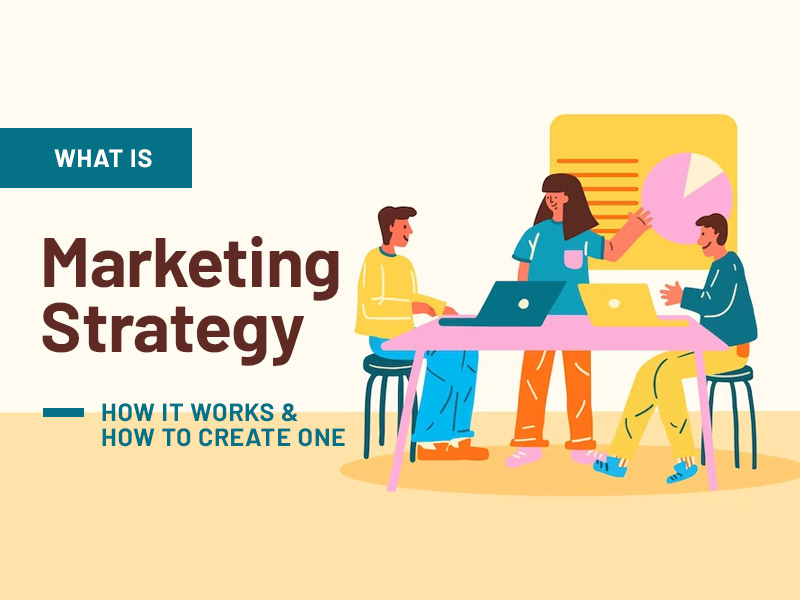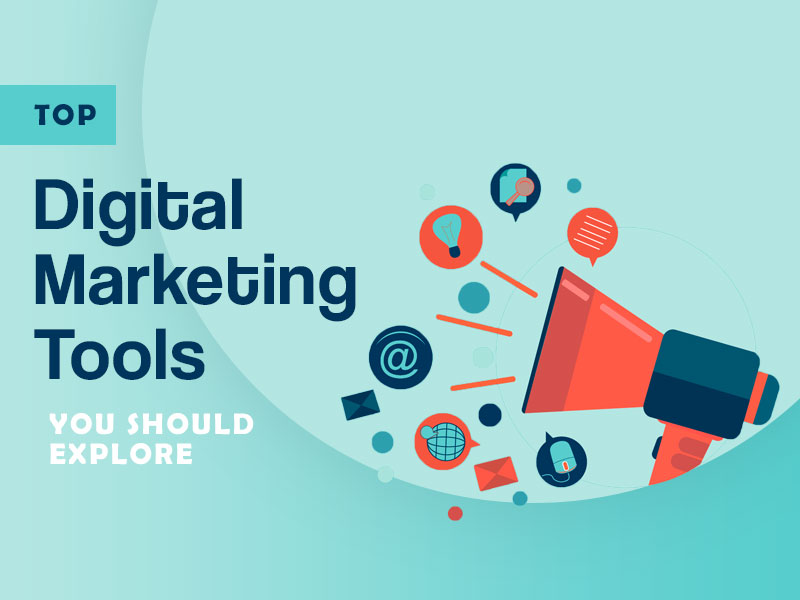In a world teeming with brands, exceptional products alone won’t make a lasting impact. Enter marketing—the catalyst that propels success, ensuring your offerings don’t go unnoticed. Let’s dive deep into the realm of marketing strategy and explore its pivotal role in today’s social media-driven landscape. Get ready for a transformative journey!
At its core, a powerful marketing strategy is a meticulously crafted plan that drives commercial outcomes. It’s the secret sauce behind increased market sales and a solidified brand reputation. Conquering the market requires identifying your target audience and fostering their loyalty—a bedrock for success. By seamlessly aligning sales opportunities, unique selling points, operations, and effective communication channels, your marketing strategy becomes an unstoppable force propelling your brand to triumph.
Now, let’s unlock the secrets to crafting an effective marketing strategy. While specifics may vary, the underlying concept remains constant—a comprehensive plan for promoting and selling your goods or services. This plan encompasses strategies that attract potential customers and convert them into loyal advocates. The marketing mix—a harmonious blend of promotional tactics, pricing techniques, distribution methods, and communication channels—forms the foundation for organizing and mapping out your marketing plan. Analyzing the features, advantages, and benefits of your offerings shapes result-oriented marketing programs, while understanding your target audience’s demographics and psychographics allows you to tailor strategies precisely to their needs.
To ensure success, select impactful communication channels—both traditional and digital. Execute your strategies with meticulous attention to detail, establishing robust measurement mechanisms to track progress and continuously improve performance. With these principles in place, and working with companies such as this Podcast Advertising Agency, your marketing strategy becomes a formidable tool propelling your business to unprecedented heights.

Defining Marketing Strategy: Exploring its Universality and Distinction
The definition of marketing strategy may vary among businesses, but its fundamental purpose remains constant: to promote and sell goods or services. It is a strategic approach that aims to attract potential customers and foster their loyalty. From a business perspective, marketing strategy can be defined and explained with a focus on the product, service, or potential customers.
The Unchanging Idea of Marketing Strategy
Regardless of the specific definition, the essence of marketing strategy remains unaltered, even as new tactics emerge. It involves mapping out and organizing a marketing plan that utilizes the marketing mix. The marketing mix consists of four components, known as the pillars of marketing, which define critical business strategies for increasing earnings and sales:
- Promotional tactics
- Pricing techniques
- Distribution methods
- Communication channels
Developing an Effective Marketing Strategy: The Essential Steps
To create an effective marketing strategy, every business must conduct a FAB analysis. This analysis highlights the features, advantages, and benefits of their products or services, serving as a foundation for identifying the best plans to create result-oriented programs.
After conducting the FAB analysis, it is crucial to specify the demographic and psychographic characteristics of the target market. This understanding helps in comprehending why customers need to purchase the goods or services. However, gathering this information requires thorough market research, which is an essential step in developing a comprehensive marketing strategy.
Market research encompasses various techniques and methods to gather data about consumer behavior, preferences, and trends within a specific industry or market segment. Say, for instance, in the healthcare sector, market research plays a vital role in understanding patient needs, physician preferences, and the competitive landscape. Conducting healthcare market research can provide valuable insights to inform effective marketing strategies tailored to the unique challenges and opportunities within this field. If interested, you can look into resources that can serve as Your guide to healthcare market research.
Emphasizing the importance of effective communication channels, both traditional and virtual media, is essential for implementing successful marketing strategies. Successful follow-up execution is crucial, as multiple approaches exist to make marketing strategies effective.
Establishing Procedure, Objectives, and Strategies
To develop a robust marketing strategy, businesses should establish a procedure and define objectives. This involves analyzing the company’s position in the market by identifying the target market, competitors, and current state of the business. Emphasizing the positive features and determining key areas of emphasis is crucial.
Setting realistic brand and sales goals, along with a timeline for achieving them, enables businesses to align their strategies effectively.
Creating courses of action based on familiar techniques, acquired through landscape examination, paves the way for effective strategy implementation.
Measuring Success and Continuous Improvement
To ensure goal attainment and progressive performance improvement, implementing controls is vital. Defining how to measure goal success and track ongoing performance enhancement provides a solid foundation for refining marketing strategies.
Consider using goal management software to facilitate effective goal setting and measure progress.
Now, let’s unveil the top marketing strategies dominating the future landscape:
Account-Based Marketing (ABM):
ABM zooms in on high-value clients instead of casting a wide net. By personalizing content, advertisements, and campaigns to meet each account’s unique needs, ABM forges deeper relationships and achieves higher conversion rates.
SEO/SEM:
Enhancing website visibility, SEO and SEM are vital digital marketing elements. SEO optimizes your website’s content, structure, and technology for improved organic rankings, while SEM leverages paid advertising and keyword bidding to secure visibility. If you’re looking to consult professionals, you might want to explore experts such as Blake Akers, or others in your area who specialize in SEO or SEM strategies.
Public Relations (PR):
PR initiatives increase brand recognition by 30% and foster customer loyalty by 50%. Through strategic communication techniques and media relations, PR shapes a positive reputation, builds trust, and generates favorable publicity.
Email Marketing:
With an astounding average ROI of $42 for every $1 invested, email marketing reigns as a cost-effective and highly profitable channel. By delivering personalized and targeted content straight to subscribers’ inboxes, it cultivates customer connections, boosts conversion rates, and ensures a substantial return on investment.
In conclusion, by embracing the power of marketing strategy and leveraging these top strategies, you have the opportunity to shape your brand’s destiny. With perseverance, strategic thinking, and a commitment to excellence, you can make a lasting impact and leave a legacy in the ever-evolving world of marketing. Unleash your potential and strive for greatness—your brand’s success knows no bounds.
Marketing Strategy: What It Is, Its Relevance, How It Works, & How to Create One?
To reach potential customers, a brand strives a lot, even if it has done enormous unbending work to improve its services; until the customers are not aware, they cannot provide its services.
Understanding this scenario, the need for marketing comes into place, and this will also succeed once strategized with professional expertise.
8 out of 10 top-performing companies continuously focus on updating their marketing strategies to tackle the striving competition in the marketing industry.
In this pressing concern, this article will showcase the strategies that are applied to marketing for increased business awareness. In the context of marketing strategy, the role of social media marketing will also be explained. So, enjoy reading further!
What Precise Marketing Strategy Can Lead?
A marketing strategy is based upon continuing planning which alternatively delivers the commercial outcomes. It is crucial to decide on specific activities to boost market sales or solidify the reputation of goods and services if these goals are to be met.
It is essential to take advantage of chances to identify the target market and build customer loyalty for the firm. This will consequently give strength to the company’s orientation in the market.
Identifying how you wish to position the product/service in the market is crucial. It is a technique for generating sales possibilities, setting a product or service, translating operating lines, and communicating with a target market through the appropriate channels.
Practicalities to Marketing Strategy
Leading to an answer to the question “What is marketing strategy?” can be the same and distinct for any business. Generally speaking, a marketing strategy is a company’s plan for promoting and selling its goods or services. It is a strategy used to attract potential customers and turn them into devoted users of the good or service. From the business perspective, a marketing strategy can be defined and explained with a focus on the product, service, or potential customers.
Regardless of how you define marketing strategy, the idea is always the same, even when new tactics are created. A marketing plan may be mapped out and organized using the marketing mix.
The marketing mix is made up of four components, and the four pillars of marketing are found to define the critical business strategies that will increase earnings and sales:
- Promotional tactics
- Pricing techniques
- methods for distribution
- Promotional tactics
How to Develop an Effective Marketing Strategy?
A FAB analysis, which includes features, advantages, and benefits of their offered products or services, must be in place within every business to identify the best plans to create result-oriented programs.
After that, specify your target market’s demographic and psychographic characteristics to assist you in understanding why they need to purchase your goods and services.
It is essential to concentrate on the most effective communication channels (traditional and virtual media) and to be able to implement the strategies with a successful follow-up of the execution since there are many ways to make marketing strategies effective.
- Establish the procedure and the objectives: Analyze the company’s position in the market by identifying the target market, the rivals, and the current state of the business. Define the positive features as well as the ones you should emphasize.
- Set objectives: Establish realistic brand and sales goals and the timeline for achieving them.
- Create the strategies: Create the courses of action based on the techniques you are familiar with after examining the landscape.
- Implement controls: Define how you will measure goal success and the progressive improvement of performance.
Top Marketing Strategies That Actually Work in 2023
With the implication of marketing services, there is a significant incline for your brand’s reputation, and it leads as a path for new customers entering your businesses; let’s discuss the most prevailing marketing strategies in the following points.
ACCOUNT-BASED MARKETING (ABM)
Account-Based Marketing (ABM) is a focused strategy that emphasizes locating and interacting with certain high-value clients more than casting a wide net. It entails adjusting marketing strategies and messages to appeal to each account’s particular demands and difficulties. ABM seeks to forge deeper relationships and raise conversion rates by personalizing content, advertisements, and campaigns. Organizations using ABM techniques have conversion rates that are 75% higher than those using conventional marketing strategies, according to research from Sirius Decisions.
SEO/SEM
Search Engine Marketing (SEM) and Search engine optimization (SEO) are two crucial digital marketing elements that increase a website’s exposure and draw in certain audiences. To rank better organically, SEO entails optimizing a website’s content, structure, and technological elements. A company that specialises in SEO can help a business to navigate the complexities of search engine algorithms. For example, Family Attorney SEO helps legal firms enhance their online presence within the legal niche by targeting the relevant audience. Conversely, SEM relies on paid advertising and keyword bidding to rank for relevant keywords. According to studies, between 70 and 80 percent of consumers disregard sponsored advertisements and concentrate on organic search results, underscoring the significance of SEO in generating organic traffic and grabbing users’ attention (Source: Search Engine Journal).
PUBLIC RELATIONS
According to Nielsen’s study, PR initiatives may raise brand recognition by 30% and customer loyalty by 50%, demonstrating PR’s profound influence on a company’s reputation and success.
Public Relations: Public Relations (PR) is a strategic communication technique that tries to manage an organization’s reputation while also fostering connections with the public, the media, consumers, and stakeholders. Companies may increase their reputation, build trust, and produce favorable publicity through media relations, press releases, events, and other PR strategies.
EMAIL MARKETING
One of the most economical marketing channels, email marketing offers an average return on investment (ROI) of $42 for every $1 invested, according to research.
Email marketing entails sending specialized messages and advertising materials straight to people’s inboxes. Due to its capability to send personalized and targeted content to subscriber lists with certain demographics, it is a very profitable digital marketing tactic.
Email marketing works better than social media advertising, resulting in 174% more conversions. These figures demonstrate the effectiveness of email marketing in developing client connections, increasing conversion rates, and generating a sizable return on investment (Source: Campaign Monitor).
Wrap Up
While you may have collected much information while conducting research, you can understand the significance of applying marketing strategies to practicalities. And it works better in the light of taking every aspect with its concerned results. Hopefully, strengthened strategies will lead to your goals! It should always be remembered that you are surviving at a highly competitive pace and are now a part of the marketing industry that is revolutionizing the world, where businesses must have profound insights to get their audiences.






